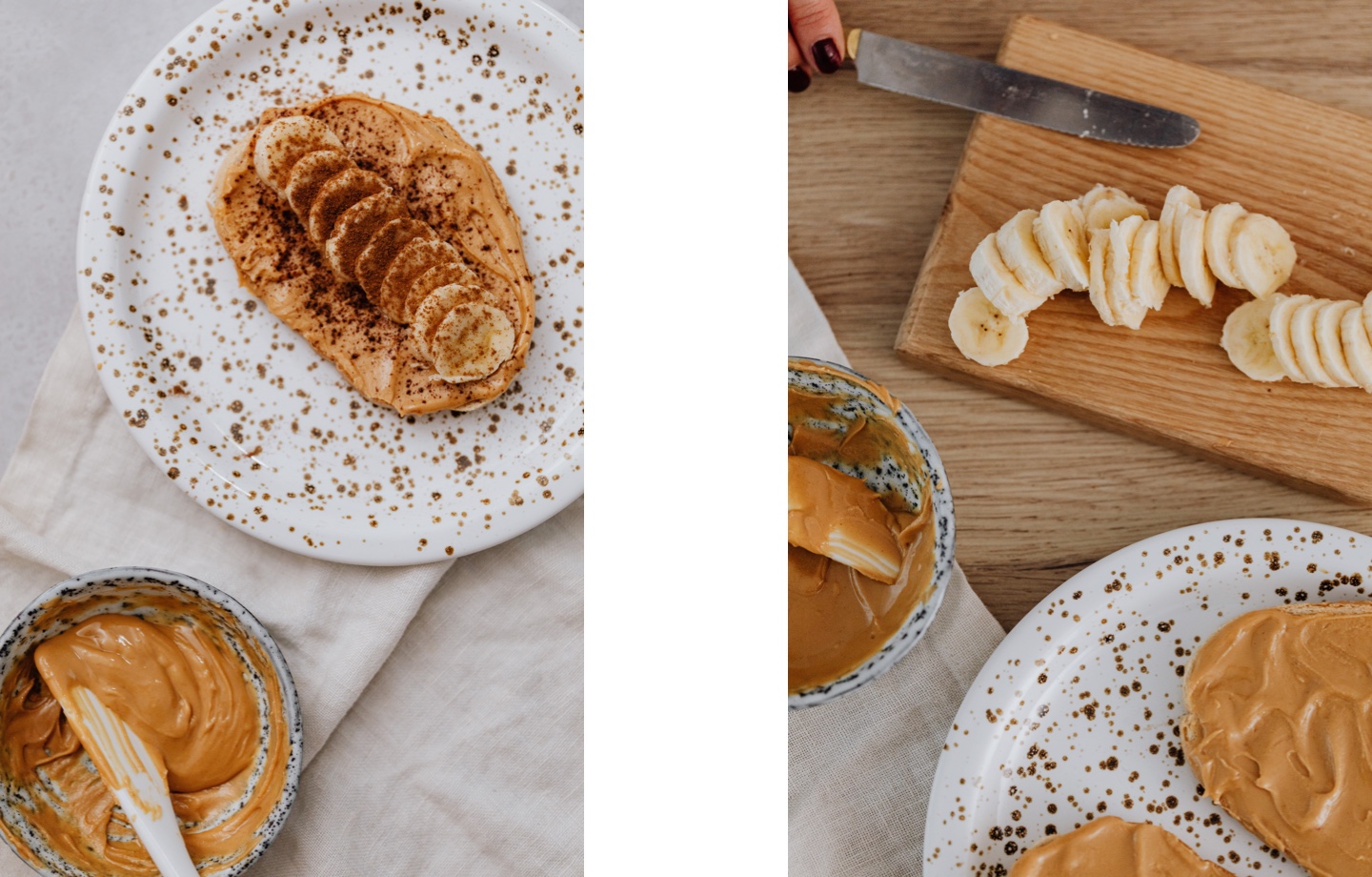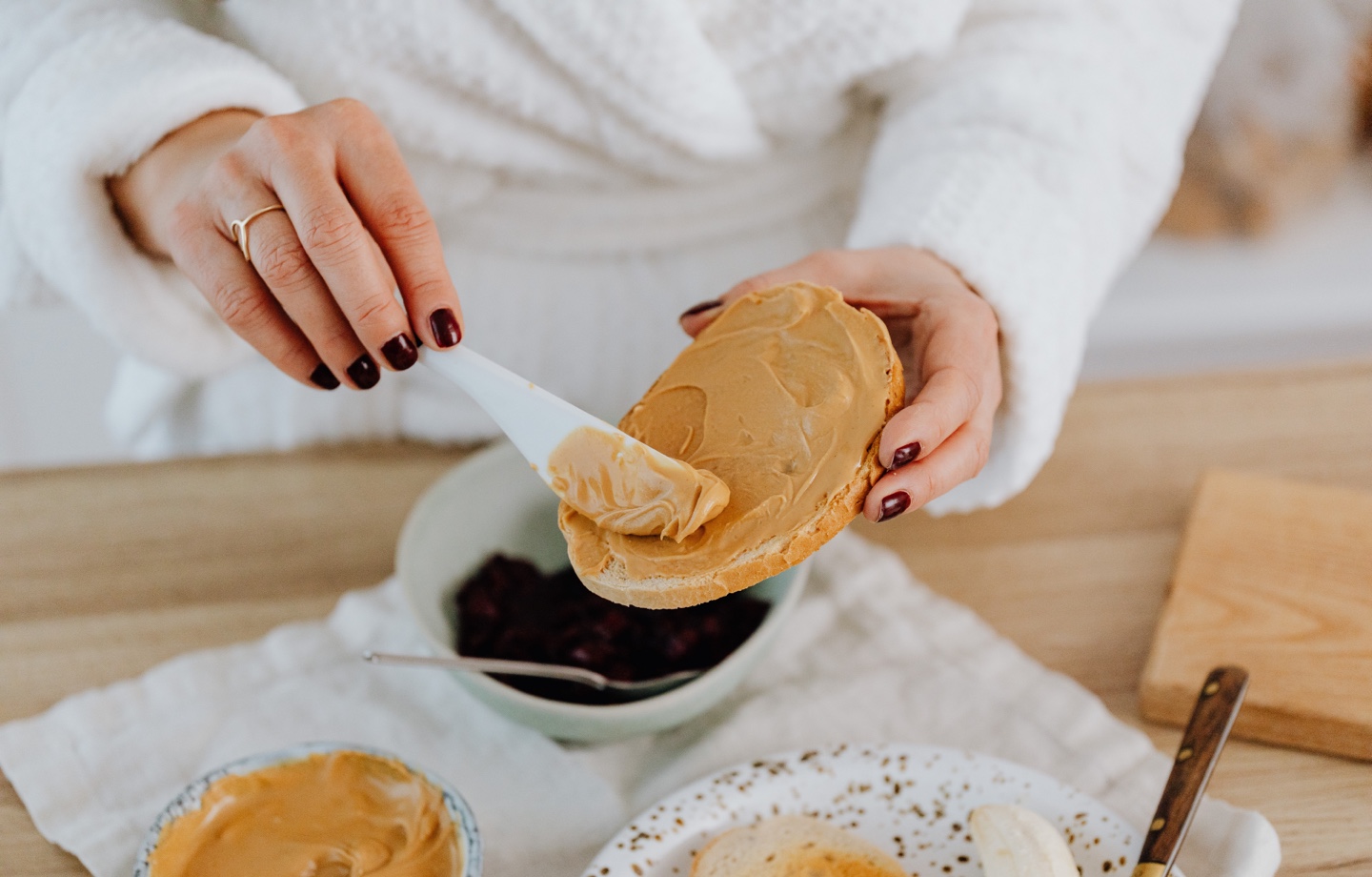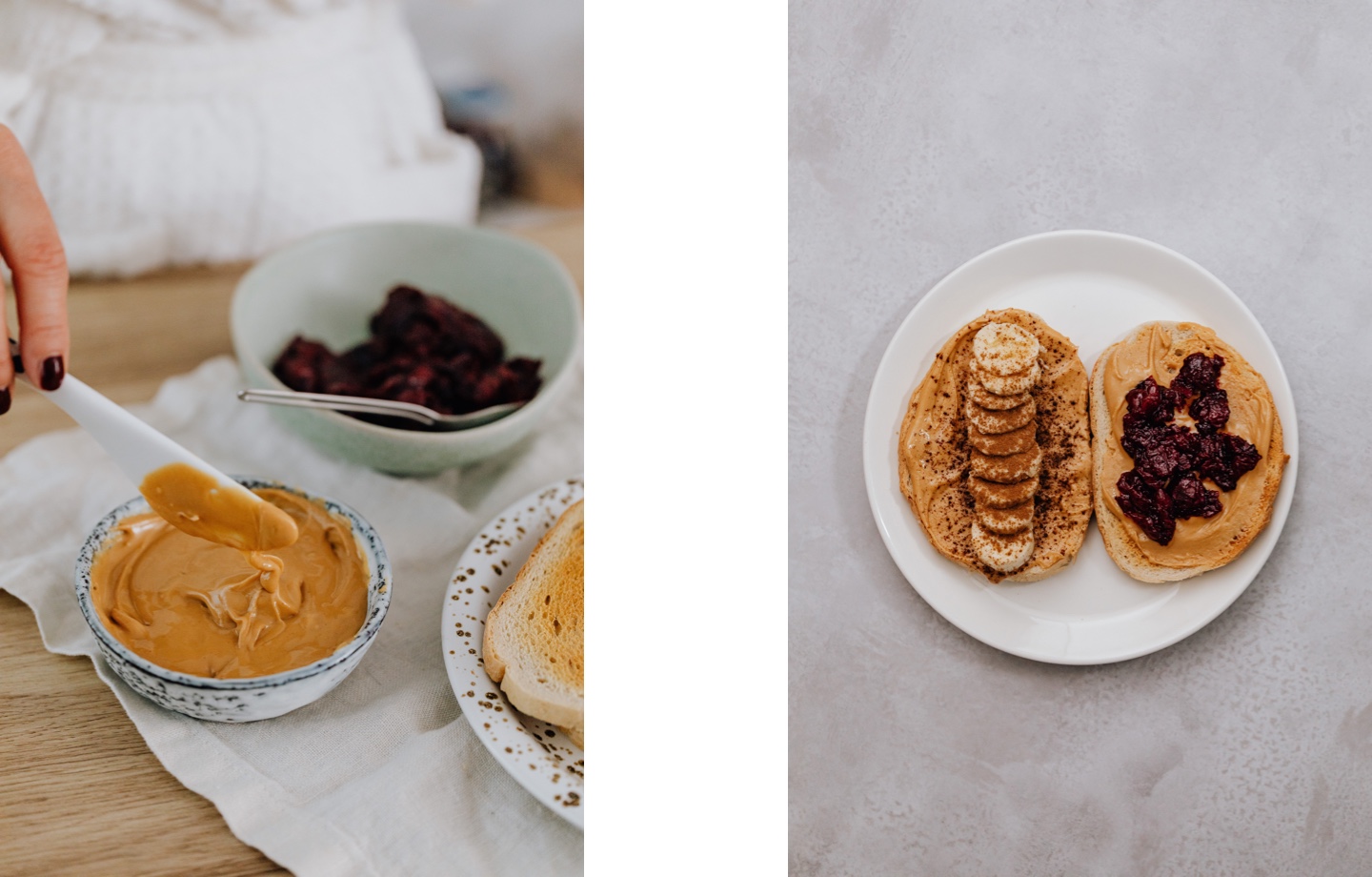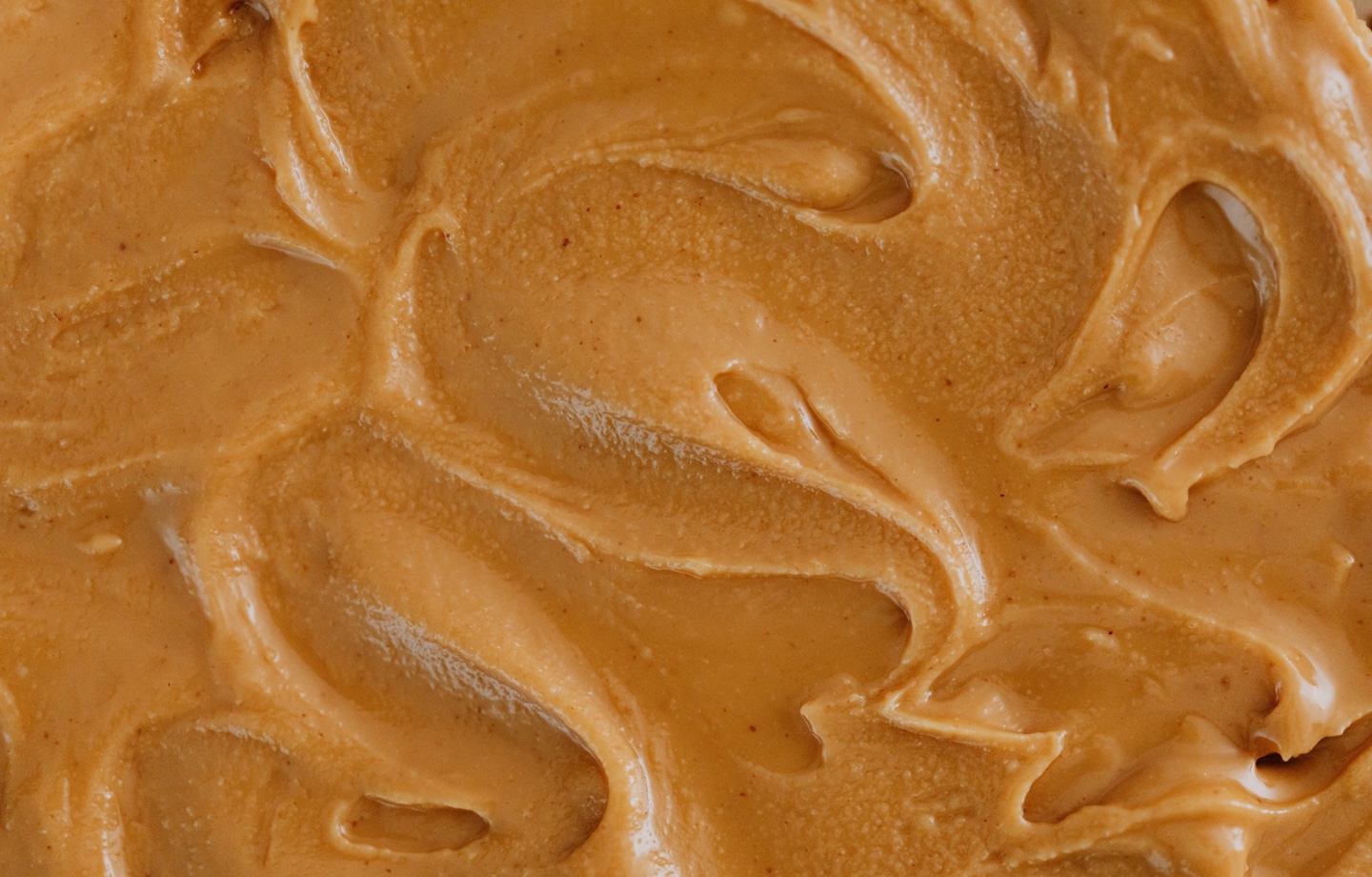When fancy nut butters came on the scene, peanut butter got kicked to the curb. But peanut butter has a lot going for it.
Peanut butter instantly jolts me back to childhood. Memories of demolishing PB&J sandwiches at lunch, celery stuffed with the crunchy spread in my mom’s attempt to get me to consume a veggie, breakfast toast with a warm, thin layer of the stuff that melted just enough for it to stick to the roof of my mouth — and stay there. Those were the days.
I became a full-fledged adult right around the time almond, cashew, and even walnut and pecan butters sashayed onto the scene. So I did what any other person in their early 20s trying to eat well would do. I let my dog finish off what was left of my jar of Jif and never paid less than $8 for nut butter again.
But one morning, as I stared at an upside-down jar of almond butter waiting for the separated oil to combine again, I wondered why I ended my love affair with peanut butter — and why it has such a bad rap.
The smear campaign started in the early 2000s, when a study found that from 1997 to 2008, peanut allergies in children spiked from 1 in 250 to 1 in 70. Tensions remain high.
Now, airlines no longer serve peanuts on planes and the old faithful peanut butter and jelly sando has been banned from daycares and schools that are peanut-free. It’s understandable — allergic reactions to the legume can be lethal if not treated immediately.
To make matters worse, in 2008 and 2009, a salmonella outbreak in peanut butter resulted in the recall of more than 3,900 products from 200 companies, along with more than 100 hospitalizations and nine deaths. A similar outbreak occurred in May 2022. Then the health food nuts (pun intended) came calling. Peanut butter has too much fat and calories they proclaimed!
Still, I’m making a rallying cry for peanut butter lovers everywhere (and those who are not allergic) to buck the bougie health food trends and come back to the healthy spread we all grew up with.
Here’s why peanut butter deserves its rightful place in your pantry.

Read more: Healthy-Ish Peanut Butter Cookie Recipe
Keeps You Fuller, Longer
It’s no wonder parents used peanut butter as a secret weapon snack. They could let us spoon globs of the stuff on apples, celery, pretzels — whatever our little hearts desired — because in addition to it being an all-around kid favorite, it’s a great source of fiber and protein. Foods with high fiber and protein content keep us fuller for longer, giving busy parents a reprieve from the dreaded refrain, “Is it snack time yet?”
For adults, fiber helps us avoid overeating or getting too heavy-handed with snacks in between meals. Protein-rich foods also burn calories faster, so it’s a win-win.
Reduces Risk of Heart Disease and Diabetes
Not all fat is bad fat. Peanut butter contains a healthy version known as unsaturated fat, which helps lower cholesterol and, in turn, the risk of heart disease and type 2 diabetes. One study shows that eating peanuts two or more times a week lowers the risk of cardiovascular disease by 13 to 19 percent and the risk of coronary heart disease by 15 to 23 percent.
Peanut butter is also rich in oleic acid and omega-6, good-for-you fats shown to reduce insulin resistance, which reduces blood sugar levels and likelihood of developing type 2 diabetes. Oleic acid and omega-6 also help keep blood pressure and cholesterol in check, both factors for maintaining heart health.
Promotes Glowing Skin and Hair
Biotin, vitamin E, monounsaturated fats, and lutein are nutrients that give your skin and hair a boost — and peanut butter has them all. Biotin, a type of B vitamin, promotes hair growth, so you have it to thank for your luscious locks. Vitamin E and monounsaturated fats on the other hand protect the skin from UV damage. Exposure to UV rays increases the risk of skin cancer and reduces the skin’s elasticity, resulting in fine lines and wrinkles. Luckily, lutein found in peanut butter gives your skin’s elasticity a leg up.

Reduces Risk of Cancer
The idea that peanut butter helps combat cancer may seem like a stretch, but it’s totally true. The nut butter contains antioxidants like vitamins E and B and manganese, which help fight off free radicals, or cell-damaging molecules that can lead to chronic diseases like cancer. Then there’s resveratrol, a cancer-fighting antioxidant that may also lower the risk of obesity, heart disease, and cognitive decline.
Helps Build Muscles
There’s a reason the buffest guys in the gym are often packing peanut butter — it’s a key ingredient for #gains. Not only does peanut butter include all 20 amino acids our bodies need to function, its high protein content helps repair and build muscles in no time. The magnesium and potassium in peanuts also aid in muscle function, development, and recovery, and can even ease cramps and fatigue. The kicker? Phosphorous. Two tablespoons of peanut butter offer about 15 percent of our body’s daily phosphorous requirement and the mineral is critical to rebuilding cells and tissue.
Read more: How to Make Your Own Recovery Gummies
Supports Bone Health
As we age, we naturally lose bone density. That’s why it’s so important that we eat foods rich in nutrients like vitamin k and copper — like peanut butter. Vitamin k helps generate bone-related proteins and regulates bone reabsorption, both critical functions for healthy bones. And studies show integrating copper into your diet can lower your probability of developing osteoporosis.

Promotes Quality Sleep
Peanut butter as a sleep aid? Hear me out. The humble spread is packed with tryptophan, an amino acid that can be converted to serotonin, a molecule that influences sleep, and melatonin, a molecule that naturally occurs in the body and regulates our sleep-wake cycle. The magnesium found in peanut butter also calms the body so you can drift off easier.
It’s worth mentioning not all peanut butter brands are created equal — many contain loads of unnecessary sugar and hydrogenated oils. A good rule of thumb: the fewer ingredients the better. Here are a few we trust: Wild Friends, Smucker’s, Justin’s, and NuttZo.
Read more: The 5 Best Natural Peanut Butters
Have feedback on our story? Email [email protected] to let us know what you think!

Shop Pillows
The Essential Organic Pillow Collection
Gentle, breathable, non-toxic support.







